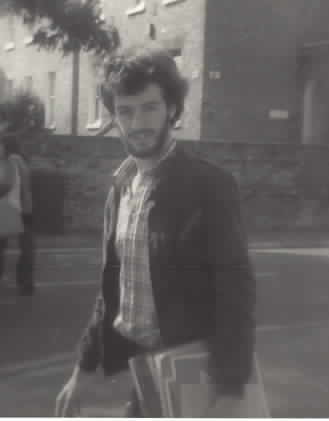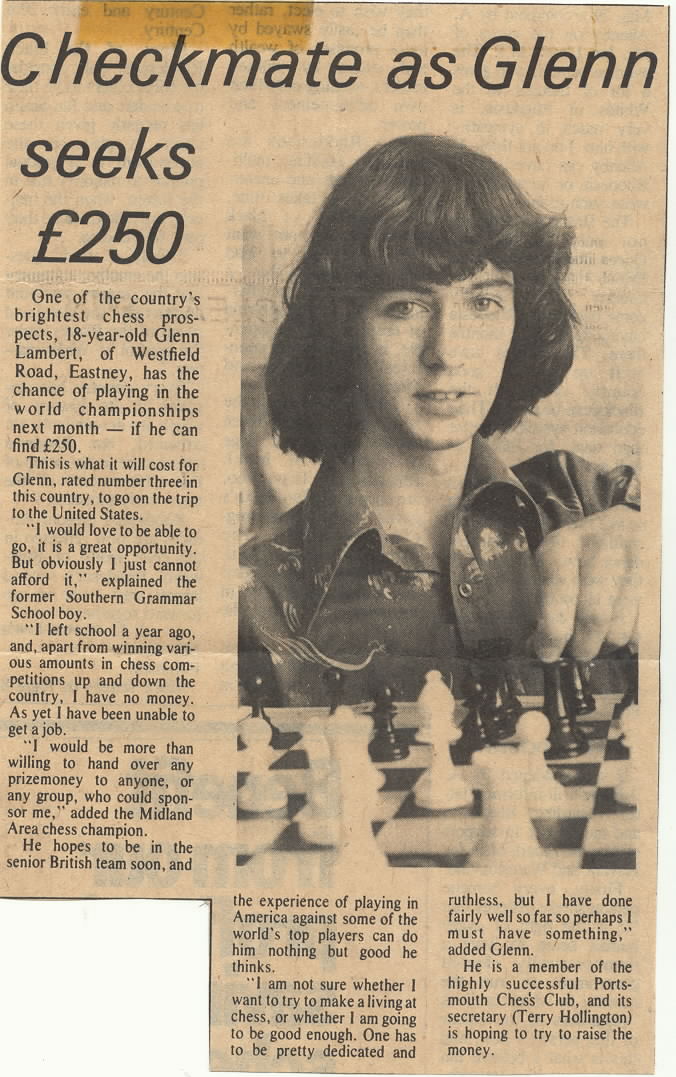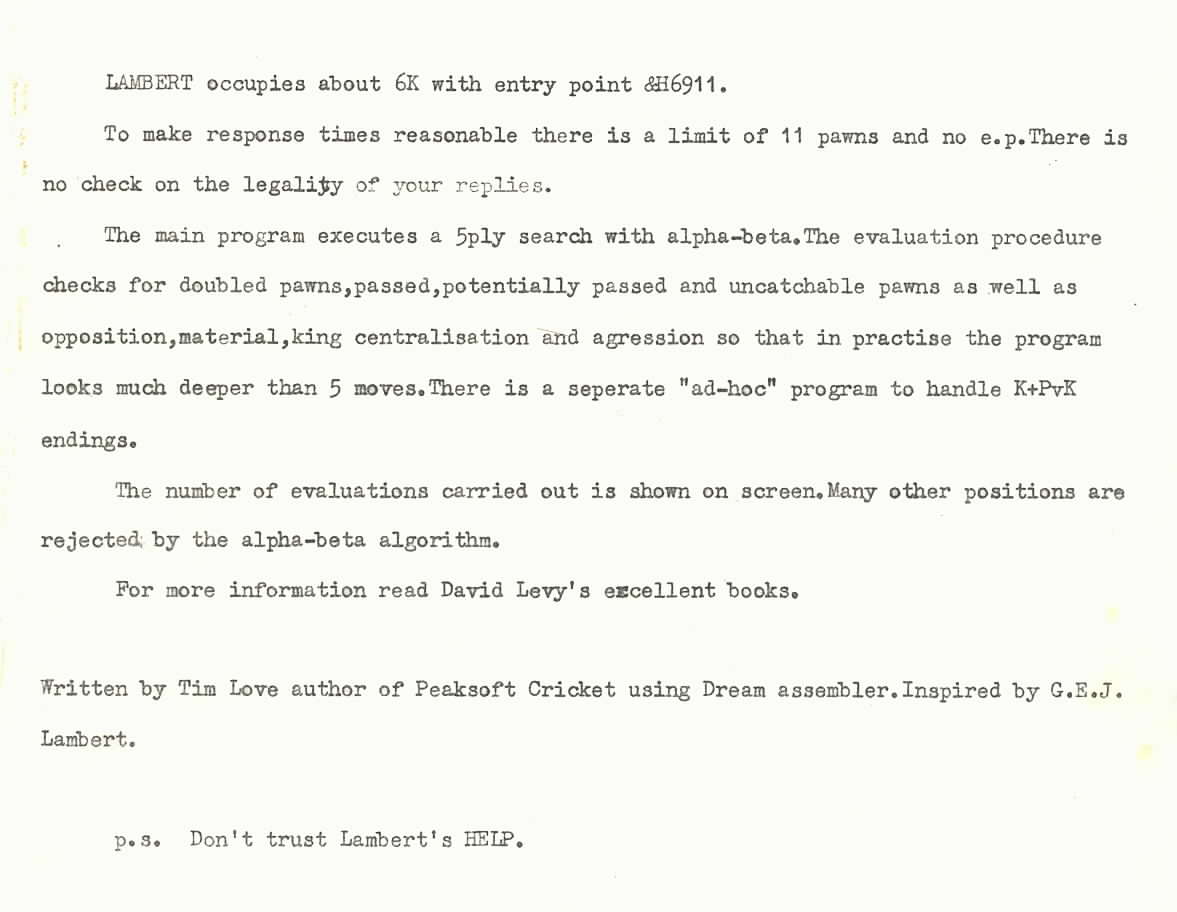
 Glenn Lambert grew up in Portsmouth. He took up chess when 11. He had a calm positional style. When he started playing blindfold chess he soon progressed to playing 4-board simuls.
Glenn Lambert grew up in Portsmouth. He took up chess when 11. He had a calm positional style. When he started playing blindfold chess he soon progressed to playing 4-board simuls.

 Glenn Lambert grew up in Portsmouth. He took up chess when 11. He had a calm positional style. When he started playing blindfold chess he soon progressed to playing 4-board simuls.
Glenn Lambert grew up in Portsmouth. He took up chess when 11. He had a calm positional style. When he started playing blindfold chess he soon progressed to playing 4-board simuls.
He attended a 6th form college but he wasn't one of the Oxbridge bunch. He didn't complete A-levels, preferring to concentrate on chess. His rise followed that of Miles. For a while in the mid-70s he was one of the UK's most promising juniors. Then Nigel Short emerged. Here's a brief outline of his career

BCF: 5.5/11,
including this "attractive win" in Rd 6. C.Shephard was black
1. d4 Nf6 2. c4 c5 3. d5 e5 4. Nc3 d6 5. e4 g6 6. Be2 Bg7 7. Nf3 Nbd7 8.
O-O O-O 9. Be3 Qe7 10. Qd2 Ng4 11. Bg5 f6 12. Bh4 Nh6 13. Ng5 Nb8 14. Rad1
Nf7 15. Ne6 Bxe6 16. dxe6 Qxe6 17. Nd5 Na6 18. Bxf6 Bxf6 19. Bg4 Bg5 20.
Bxe6 Bxd2 21. Rxd2 Kg7 22. Nc3 Rad8 23. Rfd1 Ng5 24. Bd5 Nc7 25. Bxb7 Rb8
26. Bc6 Nge6 27. Rxd6 Rxb2 28. Rd7+ Rf7 29. Rxf7+ Kxf7 30. Rd7+ Kf6 31. h4
Rc2 32. Nd5+ Nxd5 33. Bxd5
Grade: 2420
|
The Lord John Cup: 2.5/9 (won by Hort). The picture of the contestants on p.553 of the BCM V.97 leaves out "eyes-closed Lambert". Lambert drew with Mestel, and beat Torre, but his most famous game was against Kotov.
In this position Kotov (White) sealed. Lambert offered a draw, but when Kotov told him that he intended to continue 42.Re6+ Kd7 43.Rxe8 Kxe8 44.Re6+ followed by Rxe4 and Rxg4, Lambert resigned. In fact, 43 ...g3 wins. Grade: 2315 |

He started hearing voices in 1980 and was later diagnosed with Huntingdon's Chorea.